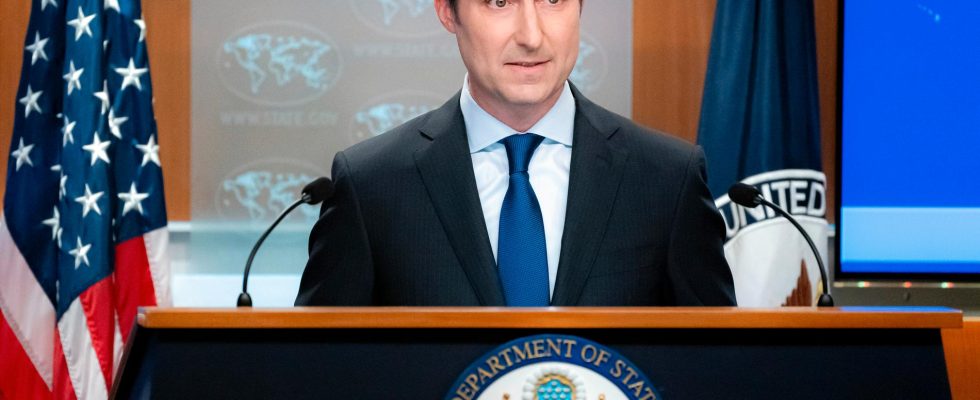unsaveSave
expand-left
fullscreen Matthew Miller, spokesperson for the US State Department. Archive image. Photo: Nathan Howard/AP/TT
Iraq has legislated on harsh punishments for same-sex relationships. Criticism from human rights groups is harsh, and the United States warns that the law means worse contacts with the outside world.
The law “threatens the most vulnerable in Iraqi society”, and “can be used to inhibit freedom of expression”, reads a statement from Matthew Miller, spokesperson for the US State Department.
The law may also scare away foreign investors from Iraq, warns Miller:
“International business coalitions have already indicated that such discrimination in Iraq will harm business and the country’s economic growth,” the statement said.
British Foreign Minister David Cameron, in turn, calls the law “dangerous” and “disturbing”.
15 years imprisonment
The criticism from Human Rights Watch is sharp. The law “establishes Iraq’s terrible history of violations against LGBTQ people and is a serious blow to basic human rights,” says Rasha Younes of the organization. Amnesty International has also severely criticized the law.
The EU has expressed strong criticism of the law.
Iraq’s parliament approved the law amendment on Saturday. The punishment for same-sex relationships can be between ten and fifteen years in prison.
Promoting same-sex relationships is punishable by at least seven years in prison, and for men who “intentionally” pose as women, the punishment is between one and three years in prison. Transgender people can be sentenced to up to three years in prison, according to the amendment, which is based on an anti-prostitution law from 1988.
“Internal matter”
Homosexual relations are a social taboo in Iraq, but so far have not been punishable.
The vote in parliament was postponed and was only carried out after Iraqi Prime Minister Mohammed Shia al-Sudani’s visit to the United States earlier in April was over.
– It is an internal matter and we do not accept any interference in Iraq’s affairs, parliamentarian Raed al-Maliki told AFP after the vote.
